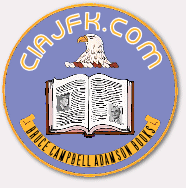











Bruce Campbell Adamson PO Box 3511, Santa
Cruz, CA 95063-3511--- EMAIL is bca@got.net
Click here for Poem written by John Kieft on Rufus Easton.
Click here for viewing video --- if interested in dvd contact me above.
Click here for update on video
 The Spirit of Alton; Before, During
and After the Civil War !
The Spirit of Alton; Before, During
and After the Civil War !Rufus Easton was honored on Oct. 1st, 2004
as first postmaster and having built the first post office in
St. Louis. Postmaster Mark Anderson said "Next to Benjamin
Franklin, Rufus Easton 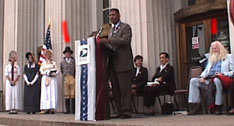 was one of the most colorful person in postal history."
This was from Postal Life 1988 magazine. I have in their
own way received support from the U.S. Postal Service. The USPS
spent millions on Lance Armstrong who appeared to be a perfect
role model. In the end the USPS was let down. I have tried to
get Rufus Easton honored on a U.S. Postage Stamp since 1985.
I learned many years later that Easton was honored on a US postcard.
I never thought Easton's biography along with Captain George
W. Ely would end up in a two hour documentary The Spirit of Alton;
Before, During and After the Civil War.
was one of the most colorful person in postal history."
This was from Postal Life 1988 magazine. I have in their
own way received support from the U.S. Postal Service. The USPS
spent millions on Lance Armstrong who appeared to be a perfect
role model. In the end the USPS was let down. I have tried to
get Rufus Easton honored on a U.S. Postage Stamp since 1985.
I learned many years later that Easton was honored on a US postcard.
I never thought Easton's biography along with Captain George
W. Ely would end up in a two hour documentary The Spirit of Alton;
Before, During and After the Civil War.
Adamson discovered that the founder of Texas, Steven Austin was a letter carrier for Rufus Easton in St. Louis. Postmaster Mark Anderson, man playing Rufus under red marks and Robert Easton, the actor and dialect coach . Photo by B. Adamson Oct. 1, 2004.
C_SPAN in 1994 asked Adamson to give a speech on Rufus Easton as did C-Span in 1994. When Adamson got up to give the speech in 1994 for C-Span's Lincoln-Douglas Debates, "I recalled Royal Dano and got choked up for Dano had just passed away. Dano was a friend and an actor whom starred as Abraham Lincoln during the 1950s for The Ford Theater." Dano was also in the film Red Badge of Courge with Robert Easton. Adamson went on to give speechs at schools and senior citizen homes in Alton, Illinois and they went well. This inspired Adamson to become a certified Toastmaster, of course I could never deliver a speech like actor and dialect coach Robert Easton.
F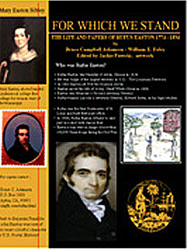 or Which We Stand: The Life and Papers of Rufus
Easton
or Which We Stand: The Life and Papers of Rufus
Easton
 or Which We Stand: The Life and Papers of Rufus
Easton
or Which We Stand: The Life and Papers of Rufus
EastonAdamson has been working on this book for 27 years. Out of all of the stories this one is his favorite.
Book was reedited by J. Parecki April 10, 2004 in Hawaii.
If not the First, Rufus was one of the First Persons to propose Statehood for Missouri in 1816 as Non-Slave State. As a former U.S. Postal Employee Adamson's proudest moment was when W. J. Maisch, Inspector in Charge of Los Angeles wrote a letter on Adamson's behalf dated February 27, 1986 on uncovering criminal activity. Three U.S. Postal Inspectors walked in to the U.S. Post Office, and these men scared the heck out of me, before they handed him a $1,000 U.S. Treasury Check as a reward. This allowed Adamson to buy his very first computer. Two years later in November 1988, Postal Life a publication that goes out to every postal employee in the country then 800,000 published the following article. Click here for 1988 article on Bruce Campbell Adamson progress in his book For Which We Stand, The Life and Papers of Rufus Easton. Adamson believes that these dedicated postal employees, an army, are the web that hold this country together.
Another inspiration to Adamson is shown in The Life and Papers of Rufus Easton was accepted into the Postmaster General's library, New York Historical Society, several Missouri historical societies and libraries. This book could not have been completed without the expertise and cooperation of Author and Professor William F. Foley; The Missouri Historical Society, especially Martha Clevenger; and The Missouri Historical Review and it's editor Jim Goodrich. Easton is my favorite project and I would personally like to see a movie on Easton rather than de Mohrenschildt. It must be the family pride.
William E. Foley is professor of History at Central Missouri State University, Warrensburg, and recipient of the CMSU 1984 Byler Distinguished Faculty Award. He has the B.S. and M.A. degrees from CMSU and the Ph.D in American History from the University of Missouri-Columbia. Research for this study was supported by a CMSU summer study leave. There are many citations throughout the book which would have left a blank void had it not been for Professor Foley's dedicated work in recognizing Easton's importance in early American history. It is odd that the importance of the United States Postal Service should have been so much ignored by those experts who have appointed themselves as historic writers. Throughout the history of the United States there are many individuals who were dedicated and served this great institution and other branches of our government. The U.S. Postal Service is the web that holds this great country together. Next to Dr. Benjamin Franklin, Rufus Easton was one of the most colorful in the Postal history at the dawn of these United States. For Easton was first postmaster of St. Louis while simultaneously judge of the largest territory ever in North America.
This book contains a thorough analysis of letters from John C. Calhoun, Thomas Jefferson, Aaron Burr, Gideon Granger, Alexander Dallas (father of George who founded Dallas, Texas), Moses and Steven Austin (Steven was the founder of Austin, Texas after he had been a letter carrier for Rufus Easton), Henry Clay, Dewitt Clinton, Abraham Lincoln, James Madison, James Monroe, Civil War Generals W.T. Sherman and U.S. Grant regarding Rufus Easton and family.
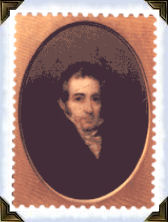 Portrait of Rufus Easton, courtesy of actor Robert Easton. Click here for Actor Robert Easton's filmography and biography. |
Rufus was associated with John Jacob Astor,
William Clark and Daniel Boone. Easton trained Edward Bates in
his legal studies. In those days Bates was obliged to move into
Easton'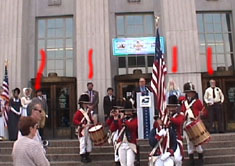 s residence
so that he could thoroughly study the law. Photo to right is Rufus, Mark Anderson, Robert Easton
and B. Adamson under Red marks. I was very proud that Rufus Easton
was honored by the post office.
s residence
so that he could thoroughly study the law. Photo to right is Rufus, Mark Anderson, Robert Easton
and B. Adamson under Red marks. I was very proud that Rufus Easton
was honored by the post office.
Prior to the outbreak of the Civil War Bates ran against Abraham Lincoln for President and was defeated by honest Abe. But there were no hard feelings for Bates was Lincoln's first choice in his cabinet as Attorney General. During the Civil War, Bates wrote to Lincoln on Langdon Easton's behalf for the position of Brevet Brigadier General.
Shortly before Lincoln issued his emancipation proclamation in 1863, Edward Bates as the U.S. Attorney General had already declared that all Negroes were U.S. citizens. It was Bates who demanded equal pay for the Negro soldiers, whom fought so valiantly for the Union. Only a year after the Civil War, in July 1866 Edward Bates wrote of Rufus Easton:
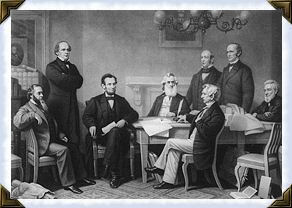 In the painting, the president is testing his Cabinet's reactions to the idea of proclaiming freedom for slaves. From left to right, the men in the portrait are: Secretary of War Edwin Stanton (seated), Secretary of the Treasury Salmon P. Chase, President Lincoln, Secretary of the Navy Gideon Wells, Secretary of the Interior Caleb B. Smith, Secretary of State William Seward, Postmaster General Montgomery Blair, Attorney General Edward Bates. |
"Easton was a wiser man than he passed for, and a better man than his adversaries chose to admit. All acknowledged his professional ability as compared with his associates, but many failed to give him the credit he deserved for his personal virtues. He was certainly the best-read lawyer of the Missouri bar in his day, the regular training of his youth and the indefatigable industry of his riper years, made him always, a formidable adversary and generally a case - gaining advocate he still lives in my memory with respect and gratitude."
Mighty strong words when one considers that Rufus Easton had left his earth in 1834.
Rufus' seven daughters married some of the most distinguished men of the Louisiana Territory: 1). George C; Sibley, Commissioner of the Santa Fe Trail and business manager of the Osage Indian Nation, owned a slave or two , yet Sibley saved the life of the Reverend Elijah P. Lovejoy the first abolitionist murdered in the U.S.A; 2). Archibald Gamble, 9th postmaster of St. Louis and brother of Missouri's Civil War Governor Hamilton Gamble; 3). Henry S. Geyer, attorney before the U.S. Supreme Court in the Dred Scott Case won case for slaveowning family; 4). James Watson; 5). Senator Thomas Anderson. 6). Abner Bartlett, of New York, who was in charge of William Waldorf Astor's estate from 1869-1894. You can read how there is good and bad in any family.
In 1805 Rufus Easton refused to partake in Burr's Conspiracy in which General James Wilkinson was a major player. In his lifetime Easton backed out of four separate duels. The most historic one was in 1805 when President Jefferson's favorite cabinet member, Postmaster General, Gideon Granger implored Easton not to participate in a duel with Aaron Burr.
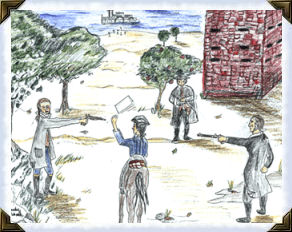 Had Gideon Granger not talked Easton out of it, the would be duel on Bloody Island between Burr and Easton may have looked this way. Artwork for this volume was prepared by Pam Kenny of Aptos, she is available for hire. Had Easton gone into a duel with Aaron Burr in 1806, Rufus' son Alton would never have been born nor would the town have been founded Alton, Illinois! |
Besides being the first postmaster Easton was also appointed by President Thomas Jefferson, Judge of the Louisiana Territory. As Judge of the territory Rufus Easton held jurisdiction over the largest land mast ever throughout the continent including Canada and Central America. The territory was so immense that it stretched from the St. Louis to the Canada border and as one historian expressed it: "westward into seemingly infinity".
Yes, Rufus Easton was a civil rights leader. As a United States Attorney in 1808, Easton represented an Ioway Indian Chief White Cloud, and saved his life from angry St. Louis citizens who wanted to make an example by hanging him. In 1814 Easton retired as the postmaster of St. Louis and was elected into Congress. Easton was responsible for the passing of a Bill for Federal Aid in one of the First Natural Disaster within the United States, the New Madrid Earthquakes. In 1816 Easton would be on the first bill to terminate slavery West of the Mississippi. Easton was then a minority.Click here for New Madrid Earthquake history.
In 1816 as the Congressional representative Easton was one of the first known persons to recommend statehood for the State of Missouri. Rufus could have brought Missouri into the Union as a non-slave state if he had won his congressional seat against John Scott, the pro-slavery candidate. Rufus Easton was appointed Attorney General for the State of Missouri by President James Monroe and served from 1821-1826.
Click here for list of men who fought with Alton Easton who elected unanimously Colonel to lead St. Legion of St. Louis in the 1846 Mexican-American War.
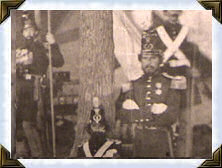 1860 photograph of Colonel Alton Easton a year before being appointed Inspector General of Missouri's militia. Adamson found this rare photo because of his trip to see Rufus Easton honored. Adamson also found an ivory painted print by the St. Louis Bank Note company at the top of this page. |
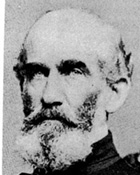 Photo
to right is Major General Andrew Smith fought with General Thomas
in Battle of Nashville. Thomas would not fight Hood until General
A.J. Smith arrived. Between Smith and his kin Alton and
Langdon Easton they were in charge of more than 165,000 Union
troops during US Civil War.
Photo
to right is Major General Andrew Smith fought with General Thomas
in Battle of Nashville. Thomas would not fight Hood until General
A.J. Smith arrived. Between Smith and his kin Alton and
Langdon Easton they were in charge of more than 165,000 Union
troops during US Civil War.
In 1818 Easton founded the town of Alton, Illinois, which was named in honor of his son Colonel Alton Rufus Easton. Alton Easton in 1807 was allegedly the first white child born in the Louisiana Territory. Before the Civil War, Alton was Colonel of the St. Louis Grays, and St. Louis Legion, and fought in the Black Hawk war in 1831-32 and the Mexican War in 1846-48.
On the outbreak of the Civil War, Colonel Alton Easton was Governor Hamilton Gamble's first choice as Inspector-General for the Missouri's militia. Alton's brother, Brevet Brigadier General Langdon Easton was Chief Quartermaster under General Sherman and both played extremely prominent roles during the Civil War. Along with the support of Edward Bates Alton Easton convinced General U.S. Grant, whom in turn convince Abraham Lincoln to appoint Langdon Easton as Brevet Brigadier General. Together Alton and Langdon Easton combined, during the Civil War were in charge of 150,000 Union troops. In 1972 the City of St. Louis changed one of their main thorough fares from Easton Drive to Martin Luther King Highway. It was done without intentionally trying to harm the memory of Rufus Easton. Easton would have had nothing but respect for King and vice-versa. An injustice has been unintentionally served upon Easton, who was unknowingly extremely helpful in the cause to abolish slavery and played an important role in early Postal and American history.
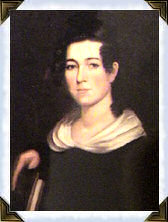 Portrait of Mary Easton Sibley who founded with her husband the first college west of the Mississippi River, Lindenwood College in St. Charles Missouri. The Osage Indian nation simply adored Mary and her beautiful music which then seemed to be from Heaven. Mary was born in 1800 and was a good friend of Susan B. Anthony. |
On January 23, 1823, Mary Easton wrote to Alton Easton: "Remember that in this country the advantages of rank and fortune are not required to make the hero or statesman. But more independently and more gloriously you rise in the estimation of the word solely by your own talents and merit. Let this idea my dear Alton stimulate you to depend on your own exertions to establish yourself an honorable character." Words from a lady who founded the first college west of the Mississippi and taught and entertained the Osage Indian Nation.
For more on Rufus Easton book click here to Next page >>>>
The Life and Papers of Rufus Easton a 300 page manuscript containing all of the above chapters sells for $25.00 and $4.00 for postage and handling. This book weighs 30 ounces and is on 8 + x 11 format.
Click here for Rufus Easton Store
Click to read letter from Martha Clevenger Missouri Historical Society 1989
Click to read letter from Martha Clevenger Missouri Historical Soc. 1991.
Click to read letter from Ulysses S. Grant Assoc.
Click to read letter from State Missouri Historical Soc of Missouri
Click to read letter from author and Stanford Professor D. Fehrenbacher
|
|||
